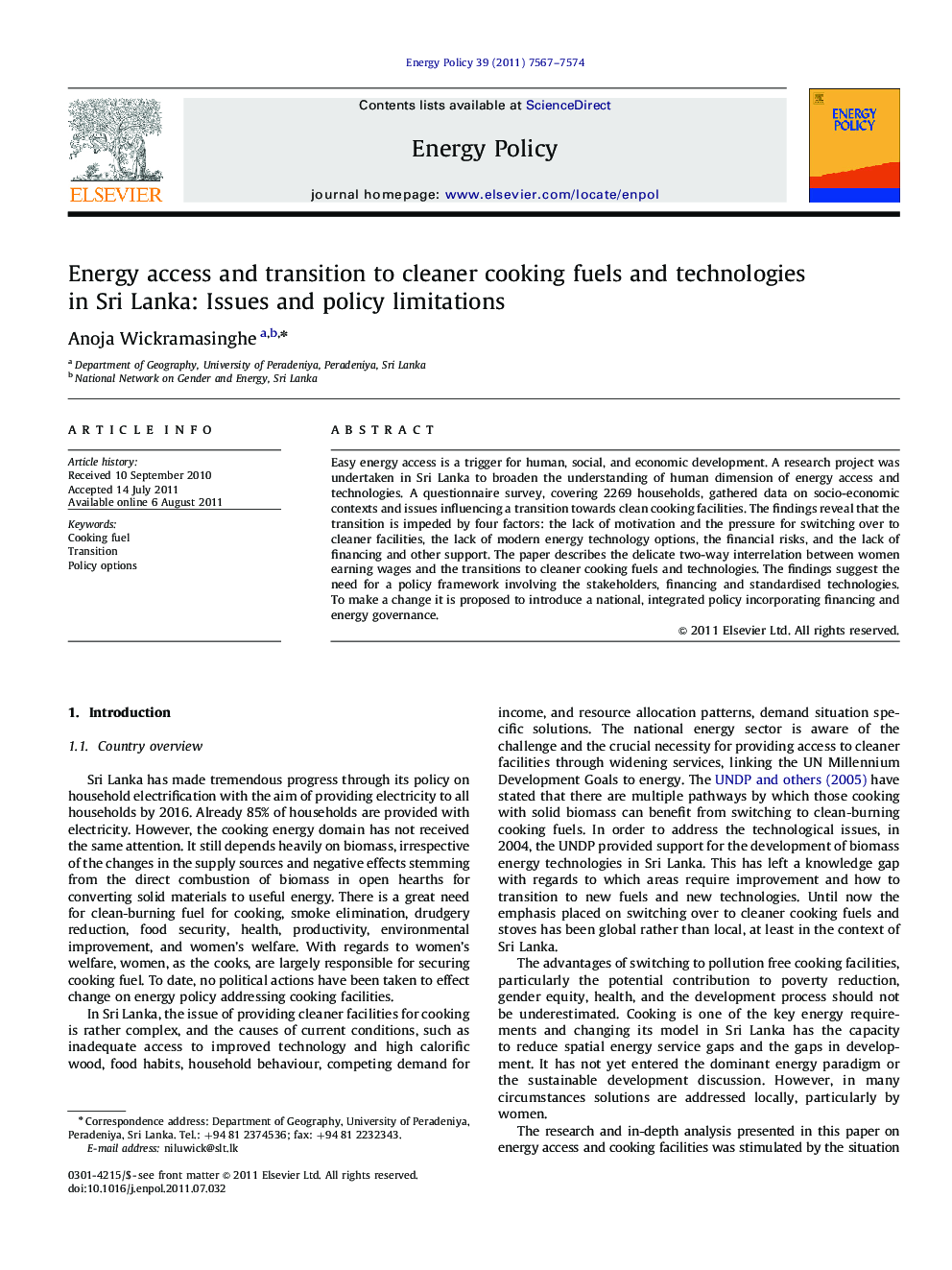| Article ID | Journal | Published Year | Pages | File Type |
|---|---|---|---|---|
| 993201 | Energy Policy | 2011 | 8 Pages |
Easy energy access is a trigger for human, social, and economic development. A research project was undertaken in Sri Lanka to broaden the understanding of human dimension of energy access and technologies. A questionnaire survey, covering 2269 households, gathered data on socio-economic contexts and issues influencing a transition towards clean cooking facilities. The findings reveal that the transition is impeded by four factors: the lack of motivation and the pressure for switching over to cleaner facilities, the lack of modern energy technology options, the financial risks, and the lack of financing and other support. The paper describes the delicate two-way interrelation between women earning wages and the transitions to cleaner cooking fuels and technologies. The findings suggest the need for a policy framework involving the stakeholders, financing and standardised technologies. To make a change it is proposed to introduce a national, integrated policy incorporating financing and energy governance.
► Households in Sri Lanka lack access to modern energy technology options for cooking. ► Cooking with fuel wood and residues is the norm in Sri Lanka, particularly in rural households. ► A survey of rural households revealed that most cannot afford to switch to cleaner cooking options. ► Most households have little awareness of the health impacts of biomass cooking. ► Women in regular formal employment are more likely to value cleaner cooking options that save time.
